Last Updated on September 11, 2024 by admin
Entavir 0.5mg Introduction
Entavir 0.5, known generically as Entecavir, stands as a pivotal antiviral medication used primarily to manage and treat Hepatitis B, a chronic liver infection caused by the Hepatitis B virus (HBV). This medication plays an essential role in the healthcare landscape, particularly for individuals battling this persistent viral infection. Hepatitis B affects millions globally, potentially leading to severe liver complications such as cirrhosis, liver failure, and hepatocellular carcinoma if left untreated.
The significance of antiviral medications like Entavir 0.5 in the treatment regimen of Hepatitis B cannot be overstated. They function by inhibiting the replication of HBV, thereby reducing the viral load in the patient’s body. This suppression helps to delay or prevent liver damage, contributing significantly to the patient’s long-term health outcomes. Additionally, by controlling the virus, medications like Entavir 0.5 aim to enhance the quality of life for those affected, offering a semblance of normalcy amidst managing a chronic condition.
However, it is imperative for patients to consult with their healthcare providers before initiating Entavir 0.5 therapy. Professional medical advice ensures that the treatment course is tailored to the individual’s specific health status and medical history. Healthcare providers evaluate potential interactions with other medications, preexisting health conditions, and the overall suitability of Entavir 0.5 for the patient. This personalized approach is critical for maximizing the benefits of the medication while minimizing potential risks.
By integrating Entavir 0.5 into their treatment plan, patients can better manage Hepatitis B and mitigate the associated health risks. Thus, understanding Entavir 0.5’s uses, benefits, and safety information is crucial for both patients and healthcare providers in making informed decisions about Hepatitis B management.
Entavir 0.5, clinically referred to as entecavir, is employed primarily in the treatment of chronic Hepatitis B virus (HBV) infection. This antiviral medication functions as a nucleoside analog, targeting HBV by inhibiting viral replication. By integrating into the viral DNA chain, Entavir 0.5 effectively halts the virus from multiplying, which is instrumental in managing the infection and mitigating its progression.
The primary use of Entavir 0.5 is to reduce the viral load in patients suffering from chronic Hepatitis B. By decreasing the quantity of the HBV in the bloodstream, Entavir 0.5 serves to alleviate the burden on the liver. This reduction is critical for patients, as it helps improve liver function and overall health. Furthermore, Entavir 0.5’s efficacy in curtailing HBV replication plays a crucial role in preventing severe hepatic complications, such as cirrhosis and liver cancer, both of which are common outcomes of prolonged HBV infection.
Aside from its primary indication, Entavir 0.5 has also been explored for off-label uses. Though not extensively documented, some studies suggest potential benefits in other viral conditions, underscoring the versatility of antiviral therapies. However, it is in the realm of chronic Hepatitis B where Entavir 0.5’s utility is most pronounced, offering patients a viable means to manage a condition that, if left untreated, can result in significant morbidity and mortality.
The goal of Entavir 0.5 therapy extends beyond simple viral suppression; it embodies a broader commitment to liver health. By arresting the progression of Hepatitis B infection, Entavir 0.5 can contribute significantly to the reduction of liver-related complications and enhance the life quality of those affected. Its role in forestalling cirrhosis and liver cancer further solidifies Entavir 0.5’s importance in the therapeutic landscape for HBV.
USES OF ENTAVIR 0.5mg
Directions for Use
Entavir 0.5, an antiviral medication primarily used to treat chronic hepatitis B, requires strict adherence to prescribed dosage and administration guidelines to be effective. As directed by healthcare providers, the medication should be taken on an empty stomach—at least two hours before or after a meal. This is crucial because food intake can affect the absorption and efficacy of Entavir 0.5.
The recommended dosage typically varies based on the patient’s age, weight, medical condition, and response to treatment. For most adults and adolescents aged 16 and older, the standard dose is usually 0.5 mg to 1 mg once daily. However, healthcare providers might adjust the dosage for individuals with renal impairments or other specific health considerations. Patients with renal impairment, for instance, may require lower doses to prevent undue accumulation of the medication in the body.
For children, the dosage is generally determined by body weight and must be carefully calculated to ensure safety and effectiveness. It is imperative to follow the healthcare provider’s instructions meticulously, as improper dosing can lead to suboptimal treatment outcomes or increased risk of adverse effects.
Adherence to the prescribed schedule is crucial in achieving the maximum efficacy of Entavir 0.5. Missing doses or not following the prescribed regimen can result in the virus developing resistance to the medication, leading to treatment failure. If a dose is missed, it should be taken as soon as the patient remembers, unless it is almost time for the next dose. Doubling up on doses to compensate for a missed one is not recommended.
In all cases, it is essential to consult healthcare professionals before making any changes to the prescribed regimen. Their guidance ensures the highest possible benefit from Entavir 0.5 while minimizing potential risks. Regular monitoring and follow-ups with the healthcare provider are integral to managing the treatment and making any necessary adjustments.
Benefits of Entavir 0.5
In Chronic hepatitis B virus (HBV) infection
Entavir 0.5, known generically as entecavir, has emerged as a key medication in the effective management of Hepatitis B. Patients taking Entavir 0.5 often witness significant advantages both in the short-term and long-term care of their condition. One of the primary benefits is its efficacy in reducing hepatic viral loads, a crucial factor in the treatment of Hepatitis B. By lowering the amount of virus in the liver, Entavir 0.5 substantially slows the disease’s progression, thereby providing a vital defense against potential liver damage and cirrhosis.
Another fundamental benefit of Entavir 0.5 is its impact on liver function tests, which are critical indicators of liver health. Continuous usage of Entavir 0.5 has been associated with notable improvements in these tests, reflecting enhanced liver function and reduced inflammation. This is particularly significant for patients because maintaining optimal liver function is essential to avoid severe complications associated with chronic Hepatitis B.
Furthermore, the overall quality of life for patients with Hepatitis B can improve considerably with the use of Entavir 0.5. The medication not only helps in managing viral loads and liver function but also contributes to alleviating the chronic symptoms that patients endure. This comprehensive management approach allows patients to engage more fully in daily activities and reduces the psychological burden of living with a chronic disease. Various clinical trials and research studies have reinforced these findings. For instance, a study published in the Journal of Hepatology illustrated significant viral suppression among patients using Entavir 0.5, along with sustained virological response and improved histological outcomes.
In essence, the benefits of Entavir 0.5 for Hepatitis B management are multifaceted, encompassing viral suppression, improved liver function, and enhanced quality of life. These benefits, supported by extensive research and clinical data, continue to reinforce Entavir 0.5’s role as a cornerstone in the treatment regimen for Hepatitis B patients.
Proper storage of Entavir 0.5 is paramount to ensuring its efficacy and safety. Entavir 0.5 should be stored at room temperature, typically between 20°C to 25°C (68°F to 77°F). It is crucial to keep the medication away from direct sunlight and excessive moisture, as these environmental factors can degrade the drug’s potency.
Equally important is to store Entavir 0.5 in its original container with the cap tightly closed. This practice helps protect the medication from contaminants and accidental exposure. For households with children or pets, always keep Entavir 0.5 in a place that is out of their reach. Medication ingestion by unintended parties can result in serious health risks.
If you have expired or unused Entavir 0.5, proper disposal is essential. Do not flush the medication down the toilet or pour it into a drain unless explicitly instructed by the product guidelines or a healthcare professional. The preferred method is to take advantage of take-back programs commonly organized by community pharmacies or local waste disposal services. If no such program is available, consult your pharmacist or local waste management authorities for guidance on safe disposal methods.
By adhering to these storage and disposal recommendations, you can help ensure that Entavir 0.5 remains effective and that any potential risks associated with improper handling are minimized. Consistently following these guidelines supports the safe and responsible use of the medication, ultimately contributing to better health outcomes.
Medicinal Benefits
Entavir 0.5, known generically as entecavir, serves primarily as an antiviral medication, particularly for chronic hepatitis B infection. Its mechanism of action is underpinned by its ability to selectively inhibit viral DNA polymerase, an enzyme critical for hepatitis B virus replication. By impeding this enzyme, Entavir 0.5 effectively halts the production of new viral particles, thereby mitigating the progression of the infection. This selective inhibition is particularly noteworthy because it does not adversely affect human cells, making the drug a highly targeted therapy for affected patients.
Beyond its primary indication for treating hepatitis B, recent research has unearthed additional pharmacological benefits of Entavir 0.5. Studies have suggested potential efficacy in combatting other viral infections, expanding its therapeutic scope. For instance, preliminary findings indicate that Entavir 0.5 might have a role in managing certain strains of hepatitis C, although comprehensive clinical trials are necessary to substantiate these claims. Furthermore, its robust antiviral activity is being explored in the context of other chronic liver diseases, offering hope for broader applicability in hepatology.
Ongoing research also delves into Entavir 0.5’s role in exerting long-term protective effects on liver health. Patients treated with Entavir 0.5 have shown reduced incidences of liver fibrosis and cirrhosis compared to untreated individuals. This is a significant benefit, considering that liver fibrosis is a precursor to more severe liver conditions, including hepatocellular carcinoma. By reducing the viral load and subsequent liver damage, Entavir 0.5 contributes to an overall improvement in liver function and patient quality of life.
As scientific investigations continue, the medical community remains optimistic about uncovering further advantages of Entavir 0.5. Its inherent selective inhibition mechanism positions it as a safer, more focused antiviral therapy, which could potentially be adapted for broader applications in managing chronic viral infections and liver diseases. Such advancements underscore the importance of Entavir 0.5 in both current treatment regimens and future therapeutic developments.
Drug Warnings and Safety Advice
When considering the use of Entavir 0.5, it is imperative to be aware of several critical warnings and safety measures. Entavir 0.5, known generically as Entecavir, is prescribed for individuals who need to manage chronic hepatitis B infection. However, certain precautions must be heeded to ensure the drug’s effective and safe usage.
A primary concern involves patients with known allergies to Entecavir or any excipients included in the formulation of Entavir 0.5. It is crucial to alert your healthcare provider to any history of allergic reactions, as severe responses could ensue.
Moreover, patients undergoing therapy with Entavir 0.5 may face the risk of lactic acidosis, a potentially life-threatening accumulation of lactic acid in the blood. Signs of lactic acidosis include muscle pain, trouble breathing, and general weakness. Concomitantly, severe hepatomegaly, or liver enlargement, sometimes presenting with steatosis (fatty liver), can also occur. This condition requires immediate medical attention.
Pregnant or breastfeeding women should engage in a thorough consultation with their healthcare provider before commencing Entavir 0.5 treatment. The medication’s effects on unborn and nursing infants are not entirely elucidated, hence the need for a well-informed decision-making process regarding its use.
Regular medical check-ups are indispensable for those on Entavir 0.5, as continuous monitoring of liver function is critical. Blood tests and other diagnostic evaluations help assess the liver’s response and the health status, allowing timely intervention if adverse effects develop.
Drug resistance is another pertinent issue. Over time, hepatitis B virus strains may develop resistance to Entavir 0.5, potentially diminishing its efficacy. Continual assessment and possible adjustment of the therapeutic regimen become essential under such circumstances.
In essence, while Entavir 0.5 offers substantial benefits for treating chronic hepatitis B, comprehending and respecting its warnings and safety advice is fundamental to ensure a beneficial and safe treatment experience.
Drug Interactions and Side Effects
When it comes to understanding Entavir 0.5, noting its potential drug interactions is crucial for ensuring effective and safe usage. Entavir 0.5, also known by its generic name entecavir, is an antiviral medication primarily used to treat chronic Hepatitis B. However, it is essential to be aware of its interactions with other medications to prevent any adverse effects.
Some commonly known medications that may interact negatively with Entavir 0.5 include other antivirals, certain antibiotics, and drugs that affect kidney function. For instance, combining Entavir 0.5 with tenofovir or lamivudine may increase the risk of side effects. Additionally, nephrotoxic drugs, which are medications that can impair kidney function like aminoglycosides or nonsteroidal anti-inflammatory drugs (NSAIDs), can further complicate Entavir 0.5 therapy.
To ensure comprehensive safety, it is advisable to use a drug interactions checker before starting Entavir 0.5. This tool can help identify potential interactions with both prescription and over-the-counter (OTC) medications, thereby allowing individuals and healthcare providers to make informed decisions. The importance of this step cannot be overstated, as it helps to prevent unwanted side effects and ensures maximal therapeutic efficacy.
When discussing side effects, Entavir 0.5 is typically well-tolerated. However, some common side effects include headache, dizziness, and fatigue. These minor symptoms can usually be managed by staying hydrated, ensuring adequate rest, and following a balanced diet. Patients may also experience gastrointestinal issues like nausea, which can be alleviated by taking the medication with food.
More serious side effects, though rare, may necessitate immediate medical attention. These include lactic acidosis, a condition indicated by symptoms like muscle pain, numbness, and difficulty breathing, and severe liver issues, which might present as jaundice or dark urine. Should these symptoms occur, it is imperative to seek urgent medical help.
Overall, understanding drug interactions and side effects associated with Entavir 0.5 is integral for maintaining optimal health. By being vigilant and utilizing tools like a drug interactions checker, individuals can mitigate risks and contribute to the effective management of chronic Hepatitis B while ensuring their safety.
Common side effects of Entavir 0.5mg
- Headache
- Nausea
- Rash
- Vomiting
- Fatigue
- Stomach pain
- Diarrhea
HOW TO USE ENTAVIR 0.5mg
Take this medicine in the dose and duration as advised by your doctor. Swallow it as a whole. Do not chew, crush or break it. Entavir 0.5mg Tablet is to be taken empty stomach.
HOW ENTAVIR 0.5mg WORKS
Entavir 0.5mg Tablet is an antiviral medication. It prevents the multiplication of virus in human cells. This stops the virus from producing new viruses and clears up your infection.
SAFETY ADVICE
warnings
![]() Alcohol
Alcohol
CONSULT YOUR DOCTOR
It is not known whether it is safe to consume alcohol with Entavir 0.5mg Tablet. Please consult your doctor.
warnings
![]() Pregnancy
Pregnancy
CONSULT YOUR DOCTOR
Entavir 0.5mg Tablet may be unsafe to use during pregnancy. Although there are limited studies in humans, animal studies have shown harmful effects on the developing baby. Your doctor will weigh the benefits and any potential risks before prescribing it to you. Please consult your doctor.
warnings
![]() Breast feeding
Breast feeding
CONSULT YOUR DOCTOR
Entavir 0.5mg Tablet is probably unsafe to use during breastfeeding. Limited human data suggests that the drug may pass into the breastmilk and harm the baby.
warnings
![]() Driving
Driving
UNSAFE
Entavir 0.5mg Tablet may decrease alertness, affect your vision or make you feel sleepy and dizzy. Do not drive if these symptoms occur.
warnings
![]() Kidney
Kidney
CAUTION
Entavir 0.5mg Tablet should be used with caution in patients with kidney disease. Dose adjustment of Entavir 0.5mg Tablet may be needed. Please consult your doctor.
warnings
![]() Liver
Liver
SAFE IF PRESCRIBED
Entavir 0.5mg Tablet is safe to use in patients with liver disease. No dose adjustment of Entavir 0.5mg Tablet is recommended.
warning
![]() CHILDREN CAUTION
CHILDREN CAUTION
UNSAFE
Entavir 0.5mg Tablet is not recommended for use in children and adolescents below 18 years.
![]() Entavir 0.5mg Tablet Habit Forming : NO
Entavir 0.5mg Tablet Habit Forming : NO
![]() expert advice
expert advice
WHAT IF YOU FORGET TO TAKE ENTAVIR TABLET?
If you miss a dose of Entavir 0.5mg Tablet, take it as soon as possible. However, if it is almost time for your next dose, skip the missed dose and go back to your regular schedule. Do not double the dose.
- You have been prescribed Entavir 0.5mg Tablet for the treatment of chronic hepatitis B virus (HBV) infection.
- Take it on an empty stomach, at least 2 hours after or before a meal.
- Entavir 0.5mg Tablet may cause dizziness or sleepiness. Do not drive or do anything requiring concentration until you know how it affects you.
- You may still develop infections or other illnesses associated with viral infection while taking this medication.
- During treatment and for at least six months after stopping this medicine, regular blood tests are needed to monitor your liver function, level of hepatitis B virus and blood cells in your blood.
FAQs ABOUT ENTAVIR 0.5MG
Here are the 25 most frequently asked questions about Entavir 0.5 along with their answers:
1. What is Entavir 0.5 used for?
A: Entavir 0.5 is used to treat chronic hepatitis B virus (HBV) infection in adults and children who have liver damage. It helps reduce the amount of HBV in the body and may lower the risk of liver damage.
2. When is the best time to take Entavir 0.5?
A: Entavir 0.5 should be taken on an empty stomach, at least 2 hours before or 2 hours after eating.
3. What are the long-term side effects of Entavir 0.5?
A: Long-term use can cause:
- Lactic acidosis (a buildup of lactic acid in the blood)
- Liver problems
- Hepatic flare-ups after stopping the medication.
Regular monitoring by a healthcare provider is necessary.
4. Can you provide a review of Entavir 0.5?
A: Patients with HBV generally report good efficacy in reducing viral load, but side effects such as fatigue and liver enzyme changes are common. It has shown positive results in slowing liver disease progression.
5. What are the common uses of Entavir 0.5?
A: Entavir 0.5 is primarily used to treat chronic HBV infections and reduce liver inflammation and scarring (fibrosis).
6. What is the recommended dosage of Entavir 0.5?
A: The typical dose for adults is 0.5 mg to 1 mg taken orally once daily. The exact dosage depends on prior HBV treatment experience and liver condition.
7. Is Entavir 0.5 safe to use?
A: Entavir 0.5 is considered safe when taken as prescribed, but close monitoring is required to prevent complications such as lactic acidosis and liver problems.
8. Does Entavir 0.5 cure HIV infection?
A: No, Entavir 0.5 does not treat or cure HIV. It is used solely for HBV infections. Patients co-infected with HIV and HBV may require additional treatments.
9. Is Entavir 0.5 safe in pregnancy?
A: Entavir 0.5 is classified as Category C for pregnancy. The risks should be weighed against the benefits, and it’s crucial to consult a healthcare provider before use during pregnancy.
10. Can Entavir 0.5 be used on children?
A: Yes, Entavir 0.5 is approved for use in children aged 2 years and older who have HBV infection. Dosage varies based on the child’s weight and health condition.
11. What if I miss a dose of Entavir 0.5?
A: If you miss a dose, take it as soon as you remember unless it is near the time of the next dose. Do not double the dose to make up for the missed one.
12. Can I stop taking Entavir 0.5?
A: Do not stop taking Entavir 0.5 without consulting your doctor, as stopping can cause a severe liver flare-up and increase the risk of liver damage.
13. What are the uses of Entavir 0.5?
A: The main use is to treat chronic hepatitis B infection and prevent liver complications such as cirrhosis and liver cancer.
14. Are there alternative medications to Entavir 0.5?
A: Yes, alternatives include:
- Tenofovir (Viread)
- Adefovir (Hepsera)
- Lamivudine (Epivir-HBV)
Your healthcare provider will determine the best treatment based on your condition.
15. Can Entavir 0.5 interact with other medications?
A: Entavir 0.5 can interact with medications affecting the kidneys or those that alter liver enzymes. Always inform your doctor of all the medications you are taking, including over-the-counter drugs.
16. How long does it take for Entavir 0.5 to show results?
A: It can take weeks to months to notice improvements in HBV-related symptoms and liver function tests. Consistent follow-up with a healthcare provider is important.
17. What precautions should be taken while using Entavir 0.5?
A: Key precautions include:
- Regular liver function tests
- Monitoring for signs of lactic acidosis (such as muscle pain, shortness of breath)
- Avoiding alcohol as it can worsen liver damage.
18. Where can I get more information about Entavir 0.5?
A: Detailed information is available on reputable websites such as:
19. What is the success rate of Entavir 0.5?
A: Entavir 0.5 has a high success rate in lowering HBV DNA levels and preventing liver damage. It has been shown to be effective in about 70-80% of patients over time.
20. Can Entavir 0.5 cause weight loss?
A: Weight loss is not a common side effect, but some patients may experience gastrointestinal side effects like nausea, which can indirectly cause weight loss.
21. Can Entavir 0.5 cause hair loss?
A: Hair loss is a rare side effect of Entavir 0.5. If it occurs, it’s usually mild and temporary.
22. Can Entavir 0.5 cause kidney problems?
A: Entavir 0.5 is eliminated through the kidneys, so patients with kidney problems may require dose adjustments. Kidney function should be regularly monitored during treatment.
23. Can Entavir 0.5 be taken with alcohol?
A: It is not recommended to take Entavir 0.5 with alcohol, as alcohol can increase the risk of liver damage.
24. How long do I need to take Entavir 0.5?
A: Entavir 0.5 is usually taken for long-term management of HBV, often for years. Your doctor will decide the duration based on viral suppression and liver health.
25. Can Entavir 0.5 cure hepatitis B?
A: Entavir 0.5 does not cure HBV, but it helps control the virus by reducing viral load and minimizing liver damage. Treatment is usually long-term to maintain these benefits.
References:
REFERENCES:
- G. Wells, Joseph T. DiPiro, Terry L. Shwinghammer, Cecily V. DiPiro. Hepatitis, viral. Pharmacotherapy Handbook. Ninth edition. Page- 214.
- Medis International. A.S. Electronic Medicines Compendium (EMC). [Revised in December 2020] [Accessed on 7th May 2022] https://www.medicines.org.uk/emc/files/pil.9874.pdf
- Entecavir. Drugbank. [Accessed on 7th May 2022] https://go.drugbank.com/drugs/DB00442



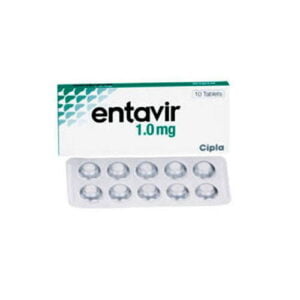

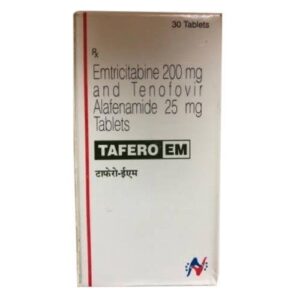
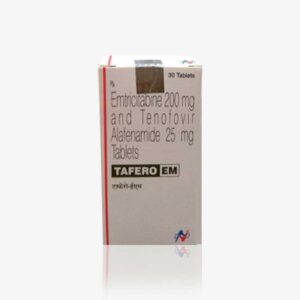
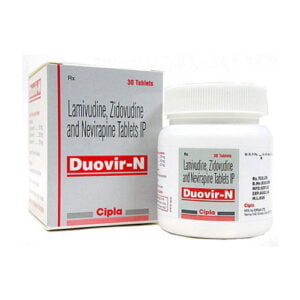
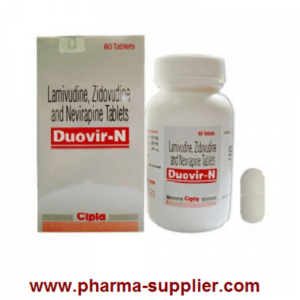

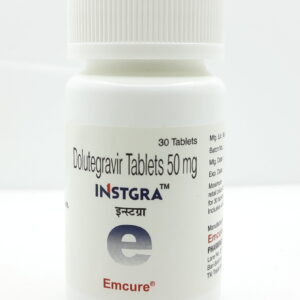
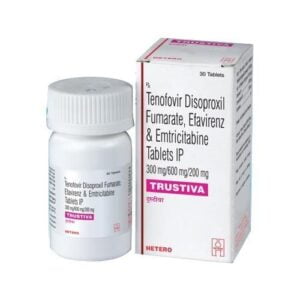
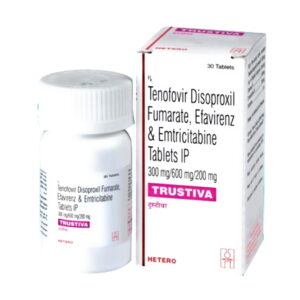
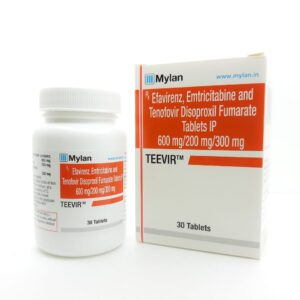
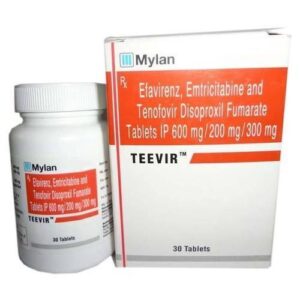
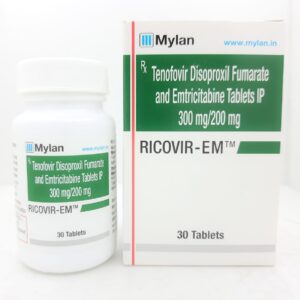
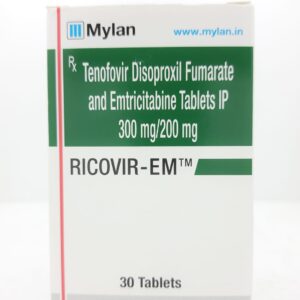

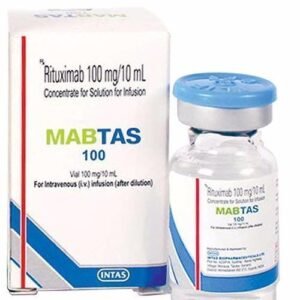

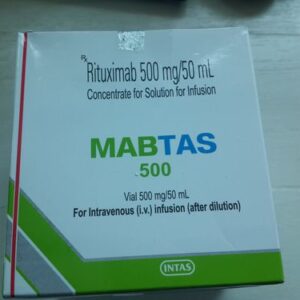


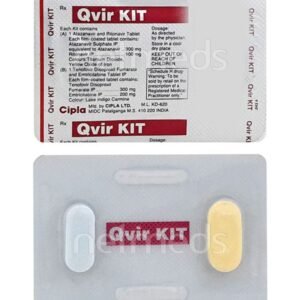
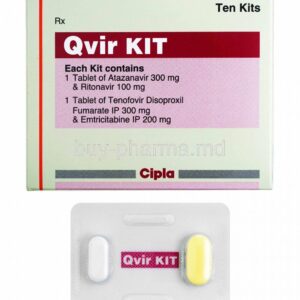

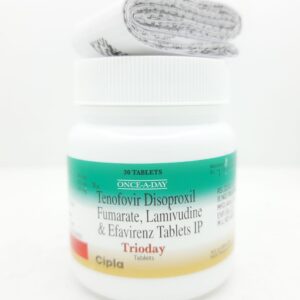
There are no reviews yet.